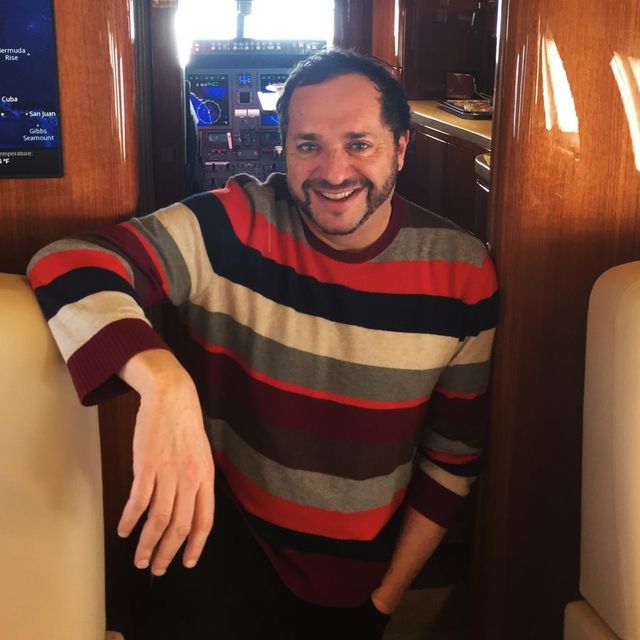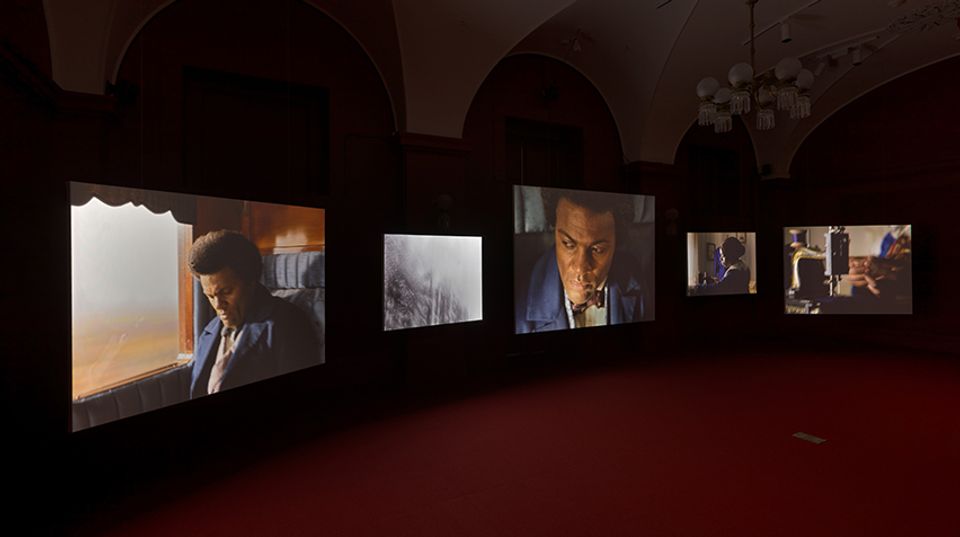
Celebrated for his vast knowledge, competitive nature, and humble personality, Ken Jennings is known to millions as a game show champion. He is also is a fan of Alexander von Humboldt, a Prussian naturalist whose endless curiosity took him around the world to study flora, fauna, barometric pressure, and elevation differences. Humboldt's six-week sojourn in the United States in 1804 is the subject of SAAM's current exhibition, Alexander von Humboldt and the United States: Art, Nature, and Culture. After narrating the introductory video for the exhibition, Mr. Jennings graciously answered our questions on why a natural curiosity is crucial in a time of online learning, why sharing knowledge is important, and his dream trivia team.
SAAM: You’ve written several books, including an in-depth look at the world of American trivia and a trivia almanac. I’m curious to know, however, what qualities you look for in individuals when you are building a trivia team?
Ken Jennings: Jeopardy! is an individual game, of course, but in college I played on a quiz bowl team. Balance is the most important thing. You want someone who knows history, someone who knows sports, someone who knows science, someone who knows movies...every subject should be covered. They also need to have great self-knowledge: the ability to know what they know. That can be harder than it sounds.
SAAM: Given Humboldt's vast knowledge in the sciences, do you think he would be ranked the world's original 1800s trivia champion? Was there a contemporary of Humboldt's that could hold their own against him in a round of trivia?
Jennings: In a quiz game like Jeopardy!, it's better to know a little bit about a lot of things than a lot about one thing. The best trivia players are Renaissance men and women, and that's a rare quality in an age of specialization. Humboldt was maybe the last and greatest of the true Renaissance men. He made important discoveries in so many sciences, but he also loved poetry, geography, history, anthropology, art and design, philosophy...the list is almost endless. Today, of course, you could easily beat him at bar trivia by asking him about nuclear physics or famous YouTubers.
SAAM: Humboldt immensely enjoyed bonding with prominent Americans such as Thomas Jefferson and James Madison. If you could captain a hypothetical trivia dream team that included Humboldt and his (in)formal disciples, which three Americans would you select?
Jennings: I'd like to see Humboldt playing trivia with writer Ralph Waldo Emerson, naturalist Louis Agassiz, and explorer John C. Fremont. Please note that they're likely to be a little slow on the buzzer, on account of they've all been dead for over a century.
SAAM: In a previous interview, you’ve voiced concerns about ensuring a commitment to lifelong learning develops in an organic manner, as opposed to learning specific factoids at your leisure, often in an instant gratification environment led by Google/Siri. How do you encourage people of all ages to commit to an education that is rooted in play and "trial and error," like Humboldt?
Jennings: People are deathly afraid of getting things wrong. On Jeopardy! that makes sense. Alex Trebek might take $2,000 away from you if you guess wrong. Keep your mouth shut. But in real life, there's no penalty. Try ideas out. Ask questions. When you hear something new, it's okay to say, "I don't know what that is, tell me more." It doesn't make you look dumb, it makes you look curious. I do it all the time.
SAAM: As one of the most recognized contestants in Jeopardy!'s history, you are used to frequently taking strategic risks in Daily Doubles and Final Jeopardy. In your Omnibus podcast on Humboldt, you reference his semi-spontaneous record-breaking climb of Chimborazo in Ecuador (stopping 1,000 feet shy of the summit). How has Humboldt's adventurous, risk-taking (strategic or not) attitude impacted our American identity? Our relationship towards nature?
Jennings: Americans from Thomas Jefferson on down were so taken with Humboldt when he stopped here on his way home. Explorers of the American West loved his courage. Thoreau and the Transcendentalists loved that he saw nature as an interconnected whole. Even though he was a German who made his name in South America, America was definitely one of the biggest chapters of his fan club. The 100th anniversary of his birth was a nationwide celebration and front-page news in the New York Times. We don't do that for just anybody.
SAAM: Humboldt believed strongly in sharing his knowledge with others and would regularly publish other scientists’ research as well; by publishing Cosmos, his five-volume masterpiece, the entire world benefitted from his observations, theories, and illustrations on biology, astrology, and geology. You also mention that Humboldt singlehandedly increased the number of species on the planet by 33% in your podcast. Americans are known for their generous spirit. Why is it so important to share knowledge (be it universities, trade associations, patent information, etc.) at the national and international levels (like the Smithsonian Institution)?
Jennings: Who benefits when knowledge is kept away from the people? Two groups: powerful people who hope you don't figure out what's really going on, and powerful people who will try to charge you for it. Thank goodness for our museums and universities. Thank goodness for the Smithsonian.
SAAM: After completing your narration for the exhibition's video, what is the biggest takeaway you have gleaned from learning about Humboldt? What lessons do you hope visitors can take away from this exhibit?
Jennings: It bothers me how much people specialize today, how picky we are about knowledge. We enjoy this science but not that one, we follow football but not baseball, we follow this kind of music but not that one. To call someone a "trivia geek" is just to say that they're an omnivore, that they enjoy learning new stuff about any subject. The problem with specialization is that we all wind up in our own little silos from knowledge, isolated from each other. We don't understand each other. We talk past each other. Cultural literacy just isn't possible unless everyone knows a little bit about everything. Humboldt was tirelessly curious about everything, and as a result he changed the world. I hope that kind of passion inspires people who are learning about him now for the first time.
Alexander von Humboldt and the United States: Art, Nature, and Culture is on view at SAAM through January 3, 2021. Planning a visit? View our new reopening policies and sign up for timed-entry passes to the museum.


















